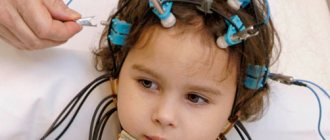Depression is a pathological mental state characterized by the presence in the patient of the so-called “depressive triad”:
- loss of mood and ability to enjoy current events;
- thinking disorders accompanied by a pessimistic, negative outlook on what is happening in life;
- motor retardation.
Outwardly, the state of depression looks like complete apathy to what is happening. At the same time, the patient himself resembles a “human robot”, without proper self-esteem, unable to think positively and automatically performing habitual actions. Often, a person susceptible to depression may become addicted to alcohol, narcotic or psychotropic substance abuse.
Today, depression is recognized as the most common pathological mental state. According to WHO, it affects 5% of children and adolescents, every 10 adult patients and every third elderly person over the age of 65 years.
Types of depression and reasons for their development
The appearance of various types of depression can be triggered by the influence of external or internal factors.
- Reactive depression - the cause of development can be a person’s previous very strong dramatic experiences, for example, the death of a loved one, a break in a relationship with a partner, divorce, loss of a job, bankruptcy, violent acts against a patient, etc. In this case, the pathology of the mental state arises as a person’s reaction to the shock he has suffered.
- Neurotic depression - a condition that can be triggered by frequent stress, psycho-emotional stress caused by overwork at work or an unfavorable family environment.
- Somatogenic depression - the causes of pathology can be previous serious illnesses, chronic illnesses and pathologies of the body. For example, traumatic brain injury, Alzheimer's disease, diseases of the thyroid gland, female reproductive organs, arthritis, bronchial asthma, etc.
- Endogenous depression is a consequence of the innate characteristics of the human psyche, which are characterized by frequent, causeless changes in mood.
- Pharmacogenic depression – occurs due to long-term use of medications, such as corticosteroids, levodopa or corticosteroids.
Often, a depressed state of mind is preceded by a long period of heavy drinking, dependence on sedatives, sleeping pills or psychostimulants.
Where to look for help
Remember that even though the disease may seem unserious, only a highly qualified psychiatrist with sufficient practical experience can cure it. If you find these symptoms in yourself or your loved ones, we recommend that you contact a specialist.
It is important to convince the patient that help will be effective if the specialist’s recommendations are fully followed. CELT employs doctors who will help you quickly cope with any manifestation of depression. Treatment will always give a positive result if you start working with the patient in a timely manner.
Depersonalization-derealization syndrome is a fairly serious mental disorder that can easily be corrected. If you find these symptoms in yourself or your loved ones, we recommend that you consult a specialist. To clarify the diagnosis and receive qualified medical care, you can contact CELT. This is one of those conditions in the treatment of which our psychoneurologists achieve good results.
Make an appointment through the application or by calling +7 +7 We work every day:
- Monday—Friday: 8.00—20.00
- Saturday: 8.00–18.00
- Sunday is a day off
The nearest metro and MCC stations to the clinic:
- Highway of Enthusiasts or Perovo
- Partisan
- Enthusiast Highway
Driving directions
Signs of Depression
According to the ICD (International Classification of Diseases), all symptoms of pathology can be divided into main and additional signs of depression. The main signs of depression include the following conditions.
- The patient's bad mood, which does not go away for 2 or more weeks.
- Loss of interest in life and events occurring in it.
- Stable loss of strength.
Additional symptoms of depression include the following:
- Sleep disorders.
- Pessimistic attitude of the patient.
- Low self-esteem.
- Unreasonable feelings of fear, anxiety or guilt.
- Decreased attention.
- Decreased ability to make quick or responsible decisions.
- Sudden fluctuations in weight.
- Lack of appetite or, on the contrary, excessive unreasonable hunger.
- Unreasonable appearance of a sweet taste in the mouth.
- Obsessive thoughts about suicide or death in general.
If we are talking about the development of depression in a child, then parents should pay attention to the presence of the following signs.
- Loss of appetite.
- Presence of nightmares.
- Negative changes in the child’s character traits, for example, the appearance of aggressiveness, isolation.
- Lack of interest in studying or going to school.
Moreover, to make an accurate diagnosis, the patient, both an adult and a child, must have two or all three main signs and at least three additional symptoms. And the degree of their severity indicates the severity of the pathological state of the psyche.
Depressive episode and its dangers
In this state, a number of patients have an irresistible desire to commit suicide. Severe depression can lead to suicide. An inexplicable feeling of anxiety or melancholy pushes people between the ages of fifteen and twenty-five to take rash, spontaneous actions. This is the most dangerous period of life, when a lack of worldly wisdom can push you to a terrible point. Every day, about fifteen people die attempting suicide. Experts say that depression most often leads people to suicide. If you are plagued by feelings of anxiety, joylessness, or depression of an inexplicable nature, do not delay visiting a specialist.
Professionals who treat depression
It is possible to provide the necessary assistance to the patient only after the main cause of depression, its type and the severity of the pathological process have been clarified. In each specific case, an individual patient treatment program will be developed.
- For reactive depression, a visit to a psychotherapist or psychologist will be recommended.
- For neurotic symptoms, visit a psychotherapist and psychologist.
- In case of somatogenic depression, it is necessary to visit a therapist, a specialized specialist who treats the disease that led to depression, and a course of psychotherapy.
- Endogenous pathology - treatment by a psychiatrist and a course of psychotherapy are provided.
- Pharmacogenic pathology can go away on its own after discontinuation of the medications that caused the depressed state of mind.
If the patient has been identified as dependent on sedatives, sleeping pills, psychostimulants or alcohol, then he will be recommended to be examined by a therapist, treated by a narcologist and a course of psychotherapy.
Treatment of pathology cannot be carried out independently using antidepressants. Prescription and dosage of medications should only be carried out by specialized specialists. Otherwise, uncontrolled medication use can cause a sharp deterioration in the patient’s condition, increase signs of depression and the degree of suicidal manifestations.
Consultations with a doctor online Taking care of your health is a life priority for everyone.
Communicate with doctors online and receive qualified assistance without leaving your home. Try it Please note! The information on this page is provided for informational purposes only. To prescribe treatment, you must consult a doctor.
How depression physically manifests itself
People who are depressed often experience headaches, accompanied by dizziness and sometimes loss of consciousness. Aching pain in the heart area and heaviness in the abdomen may appear. Patients begin to complain of aching muscles and joints. The work of the gastrointestinal tract is accompanied by unsystematic changes in diarrhea and constipation. In women, the menstrual cycle is disrupted, and men may completely lose interest in sexual activity. Many somatic diseases can be a manifestation of depression. It is for this reason that among specialists there is the concept of masked depression. A similar term explains the condition when the disease is hidden behind somatic disorders. Statistics paint an alarming picture, stating that at least a third of patients visiting surgeons, internists, endocrinologists, gynecologists and other specialists, in fact, suffer from depression.
Diagnostics
The doctor determines the diagnosis based on typical complaints, assessment of lifestyle, medical history and special tests to determine the level of depression. To make a diagnosis, a doctor needs to assess the level of depressive disorders, the presence of at least two symptoms included in the depressive triad, as well as the presence of additional indicators. These are pessimistic moods, constant feelings of guilt, problems with decision-making, serious difficulties with concentrating, low self-esteem, suicidal thoughts, sleep disorders, severe fluctuations in appetite.
To exclude somatic diseases, an examination is carried out with consultation from specialized specialists.
Treatment
Only a doctor can determine ways to get out of depression. Thus, depressive disorders that occur in a mild form can be corrected through psychotherapy and supportive treatment. You need to visit the doctor about twice a week, he can determine, together with the patient, ways to get out of a depressive state. Consultations can be either face-to-face or by telephone or video conference. The doctor will explain that these are not problems of mood and character, but a serious illness, will tell you how this or that variant of its course is treated, will help you understand what is happening, and will advise ways to correct your mood.
Moderate to severe depression requires medication in combination with psychotherapy and complementary treatments. All antidepressant drugs are selected individually, taking into account existing manifestations and additional factors, they are used for at least 6-12 months in a row, also identifying possible signs of recovery from depression. Source: Depression and antidepressants. Lyubin G.S. Medical news No. 8, 2021. p. 8-12. If necessary, the doctor will supplement the treatment with other medications - antipsychotics, anticonvulsants or tranquilizers.
Unfortunately, it is difficult to answer how to get rid of depression forever. Often, against the background of provoking factors, the disease can return. Phototherapy, the use of powerful light sources, is often used in combination with other methods to combat seasonal disorder.
How to get out of depression: advice from doctors
According to clinical guidelines for the treatment of mild depression, treatment without medication is acceptable, sometimes on its own. Fighting stress, a new hobby, and a change of place of residence are useful. Relatives or visits to a psychologist can help, but if the situation worsens, you need a psychiatrist or psychotherapist.
Close people need to show concern for a depressed person; it is worth determining in advance what not to say to a depressed person. Everyone may have their own topics that should be omitted and not touched upon in conversations, so as not to upset the person.
Depression... what to do?
Depression
One of the most common requests when seeking psychological help is depression . Today I would like to talk a little about this unpleasant and, unfortunately, often occurring mood disorder. It brings a lot of unpleasant experiences both to those suffering from depression and to their loved ones.
Treatment of depression
Treatment of real depression - and as we will see in the article, people do not always correctly assess their condition, and sometimes call something depression that in fact is not it - so, the treatment of real depression is long-term . The more severe the depression, the more likely it is that antidepressants will be needed. A psychiatrist has the right to prescribe these medications. If you are seeking advice from a psychologist or psychological psychotherapist about true depression, then it would be correct if you are referred for additional advice to a psychiatrist.
At this point, we must immediately say that there is no need to be afraid of contacting a psychiatrist! People often have some fears like “they’ll register, and then...” - and then you won’t be able to buy a weapon, they won’t give you a driver’s license, they’ll put you in a straitjacket, a syringe in your thigh - and they’ll force you to the hospital, they’ll feed you neuroleptics until you’re a vegetable. , to work and all the neighbors will be informed that he is crazy, and so on.
- Firstly, Soviet times are long gone. No one will put a “registration” stamp on your passport.
- Secondly, there are severe psychiatric illnesses, and there are milder ones. There are people who are dangerous to themselves and others, and others who are not. If your cases are both the first, you will still sooner or later, one way or another, end up with a psychiatrist - but better sooner!
- And thirdly, go to a private psychiatrist - this is an ordinary doctor, and don’t worry.
In the Tests section on this site, as well as at the end of the article, there will be links to tests for depression , allowing you to assess the severity of its manifestations, so if you found yourself on this page not by chance, then please take them, and, if you have severe depression - get help! Fighting depression alone can be very difficult, but with someone else you will definitely find it easier. Suicidal thoughts are a reason to contact your doctor, psychiatrist or psychotherapist as soon as possible.
Black suprematist square. Kazimir Malevich, 1915.
Depression can happen to anyone, any age, any social circle. By no means is depression something “normal, common in this difficult life.” Despite the fact that up to 80% of all patients eventually completely get rid of depression with the help of effective treatment (including, possibly, medication!), only half of the patients seek psychological or psychotherapeutic help. Unfortunately, many people believe that depression is a sign of “weakness of character,” that it’s “not serious,” and that they can cope “somehow on their own.” Please remember that depression is a disease. With proper treatment, a person can return to normal life.
So what is depression?
Most people's mood changes throughout the day - sometimes getting better, sometimes worse. They experience feelings of joy, sadness, irritation, fun, etc. about the life situations happening around them, and at the same time, these feelings do not have any significant impact on the quality of their life as a whole. Well, feelings and feelings. If you ask them to draw a graph of how their mood changed during the day, it will most likely be something like this:
But people suffering from a mood disorder (which includes depression) usually remain in a constantly low mood for several days, weeks, or months.
And their mood graph will look something like this:
As a result, a bad mood constantly affects all contacts with the outside world and prevents normal functioning.
Depression happens:
- monopolar, from the words “mono-” = “one” and “polar” = “pole” - that is, one pole, one side;
- bipolar, respectively “bi-” = “two”, that is, two poles, two sides.
Unipolar depression is when there are relatively long periods of depression, loss of moral strength, extremely low self-esteem, feelings of guilt, etc. That is, in a broad sense, as we usually call it, simply “depression.”
Bipolar depression is when periods of depression alternate with periods of unbridled activity, euphoria, lasting at least a week. This article is about unipolar depression, although much of what will be said applies to bipolar depression as well.
Numbers about depression:
- Every year, 5 to 10% of the adult population suffers from a severe form of unipolar depression;
- Almost 20% of people will experience an episode of depression at some point in their lives;
- A depressive episode occurs at least once in 26% of women and only 12% of men.
The course of depression may vary from person to person; some may have more severe symptoms than others. But in any case, depression reduces productivity and reduces the feeling of satisfaction with life. Additionally, symptoms of depression typically span five areas: emotions, motivation, behavior, thinking, and physical health. Let's look at them separately.
Emotional symptoms of depression
Depression is accompanied by feelings of sadness and depression, devastation, humiliation, etc. People feel unhappy; nothing can make them laugh or bring them joy. Usually depression is associated with the color black: black melancholy, a black period in life.
Changes in motivation in depression
As a rule, when you are depressed, you don’t want to do anything: you are not attracted to either old, long-known activities or new and seemingly interesting things. People suffering from depression have to force themselves to: go to work, communicate with people, eat, and perform normal daily activities. Sometimes you can hear the opinion from the average person that these people are “simply lazy or capricious,” and that if they “try hard enough, they will be able to force themselves to live normally.” Unfortunately, this is not the case at all. People suffering from depression find it very difficult to even just want to “go to work normally.”
Depression and behavior
When people are depressed, they are less active, less productive, spend more time alone, and may stay in bed for long periods of time. In addition, there may be slowness of movements or even speech, a quiet voice.
Changes in thinking with depression
Depression is accompanied by a drop in self-esteem, and people begin to evaluate themselves negatively, to the point of extremes: they are sincerely convinced that they are incompetent, unwanted, inferior. As a rule, they tend to notice and acutely blame themselves for all negative events (even if these events have absolutely nothing to do with them), and, conversely, they very rarely notice any of their achievements and successes. And if they do notice, they tend to downplay their significance. A certain kind of “devaluation” filter is triggered: “everything I have achieved is complete nonsense.”
An important component of depression is a pessimistic view of yourself, the world and the people around you: “Nothing good has happened, is not happening, and is unlikely to happen.” “I can’t change anything, so there’s no point in trying.”
Often, with depression, there is a real decrease in the functions of thinking: memory and concentration are weakened, and forgetfulness occurs.
Physical symptoms of depression
Sometimes it happens that depression is first diagnosed as a physical illness: people complain of headaches, problems with digestion, problems with sleep, dizziness, and general malaise. You may lose your appetite. When people with depression wake up in the morning, they still feel tired.
Causes of depression
There are many factors that can influence the onset of depression. Moreover, some people “need” several factors to coincide or happen, while for others one is “enough”. And sometimes it happens that depression occurs without obvious reasons. Different factors may play different roles in the onset and development of depression.
- Biological causes: insufficient activity of neurotransmitters in the brain; high levels of the hormone cortisol (secreted by the adrenal glands, for example, during periods of stress); high levels of the hormone melatonin (released when there is insufficient or reduced amount of sunlight).
- Habitual negative “thinking styles”: So-called “negative thinking” and low self-esteem can contribute to the development of depression. According to M. Seligman, the central place in depression can be occupied by the so-called. learned helplessness is the idea that you are unable to control negative events in life because there is something wrong, global and persistent about you. For example, “What happened is my fault, I spoil everything I touch, and it will always be like this.” This style of thinking can lead to feelings of hopelessness, in which case the risk of depression is quite high. According to A. Beck, there is a cognitive depressive triad: errors in the perception of the situation, oneself (one’s experience) and one’s future.
- Gender differences: Depression occurs almost twice as often in women as in men. Moreover, it is associated with hormonal changes in the body at the onset of menstruation, pregnancy, childbirth, and menopause. For some women, depression can be triggered by severe stress from fulfilling incompatible social roles. Postpartum depression occurs within 4 weeks after childbirth in 10-30% of women who give birth. It is necessary to distinguish postpartum depression from postpartum melancholia , which occurs in most women (up to 80% according to studies by Najman and Horovitz) as a result of a dramatically changed life situation, sleep disturbance, additional stress and emotional fatigue. Women may experience bouts of crying, anxiety, insomnia, and sad mood. As a rule, postpartum melancholy will go away on its own within a few days or weeks, when the woman and her body adapt to new conditions. Postpartum depression does not go away so quickly, and its symptoms (deep sadness, despair, tearfulness, fear, feelings of incompetence, etc.) can last several months.
- Depression can accompany other diseases, such as eating disorders, cardiovascular diseases or diabetes.
- Taking medications: Some medications can cause depression as a side effect (so-called depressogenic medications). These include some medications for the cardiovascular system, hypertension, hormonal, psychotropic medications, etc.
- Genetic causes: If there is a history of depression in the family, the likelihood of its occurrence increases.
- Difficult, stressful events in life: divorce, financial problems, death of loved ones, etc. According to research by Kohn & Kendler, significantly more stressful events occurred in the lives of people suffering from depression in the month before the onset of the disorder than in the lives of the average person during the same period.
Treatment of depression
Like many other psychological disorders, the approach to treating depression must be comprehensive. From a biological point of view - prescribing antidepressants; from the point of view of psychotherapy, it is possible to work with various psychological models: from the point of view of the psychodynamic approach (psychoanalytic theories) - working through early traumas and losses, one’s weaknesses, dependence on others, etc. From the point of view of cognitive-behavioral psychotherapy works on inadequate irrational attitudes, negative thinking styles, identifying new sources of joy in life and returning to old ones. Sociocultural models (eg, interpersonal psychotherapy) will deal with interpersonal role conflicts and shifts, interpersonal deficits, etc. that contribute to depression. In any case, you need to start with consulting a psychologist.
What are the conclusions?
- Depression is not “laziness,” “weakness of character,” or “whims.” This is a disease that needs to be treated.
- Depression can be caused (provoked) by various factors and causes in various combinations. Therefore, treatment for depression should ideally be comprehensive. A combination of medications and psychotherapy works best.
- Among other factors, a negative thinking style can contribute to the development of depression.
- Depression can threaten life and health, as depression can cause thoughts of suicide.
- In most cases, with adequate treatment, symptoms of depression can be reduced, if not eliminated.
Provided by SendPulse
Prevention
Measures to prevent depressive disorders may include maintaining a healthy lifestyle, giving up bad habits, actively combating stress, normalizing sleep and eating a balanced diet.
Regular exercise is beneficialSource: Physical activity and depression: Towards understanding the antidepressant mechanisms of physical activity Aaron Kandola, Garcia Ashdown-Franks, Joshua Hendrikse, Catherine M Sabiston, Brendon Stubbs. Neuroscience & Biobehavioral Reviews, Volume 107, December 2021, being in the fresh air, active communication with family and friends, having a hobby or hobby.
Sources:
- Depression: find and neutralize. Sosunova N.A. Healthcare of Ugra: experience and innovations, 2015. p. 5-9
- Depression: from treatment to prevention. Hovsepyan A.A. Difficult patient, 2015. p. 46-49
- Depression in neurological practice. Romanov D.V., Petelin D.S., Volel B.A. Medical Council, 2021. p. 38-45
- Depression and antidepressants. Lyubin G.S. Medical news No. 8, 2019. p. 8-12
- Neural mechanisms of the cognitive model of depression. Seth G Disner, Christopher G Beevers, Emily AP Haigh, Aaron T Beck. Nature Reviews Neuroscience volume 12, pages 467–477(2011)
- Physical activity and depression: Towards understanding the antidepressant mechanisms of physical activity. Aaron Kandola, Garcia Ashdown-Franks, Joshua Hendrikse, Catherine M Sabiston, Brendon Stubbs. Neuroscience & Biobehavioral Reviews, Volume 107, December 2019
- Circadian regulation of depression: A role for serotonin. Rachel A Daut, Laura K Fonken. Frontiersin Neuroendocrinology, Volume 54, July 2019










